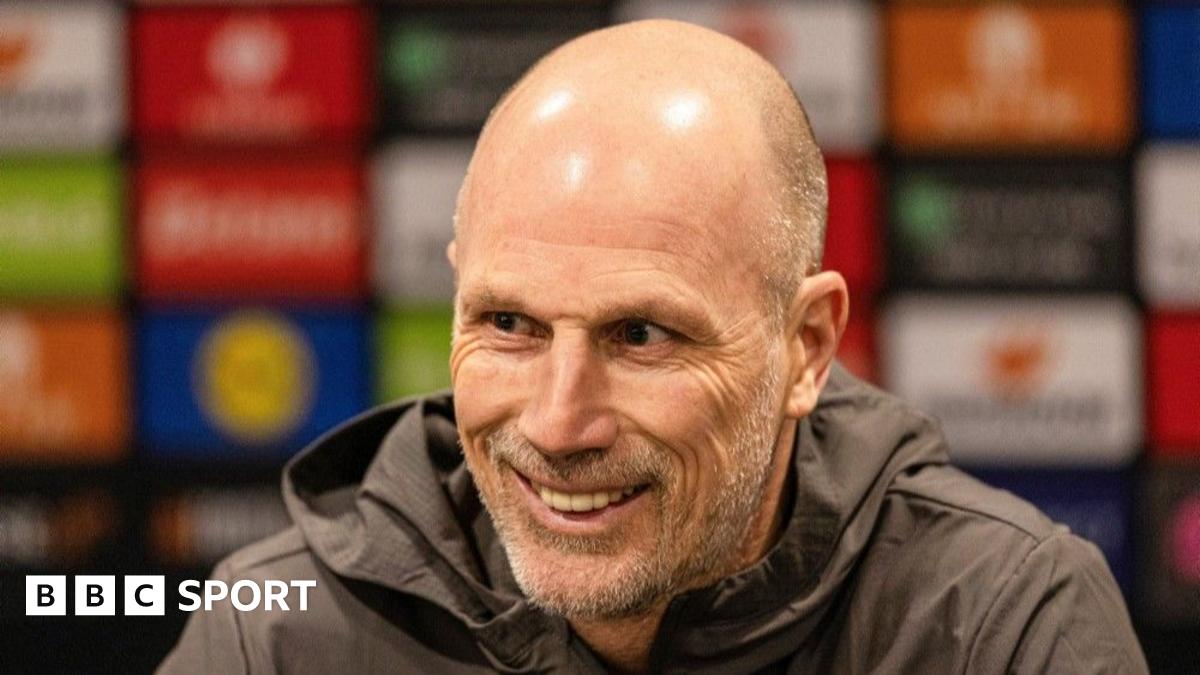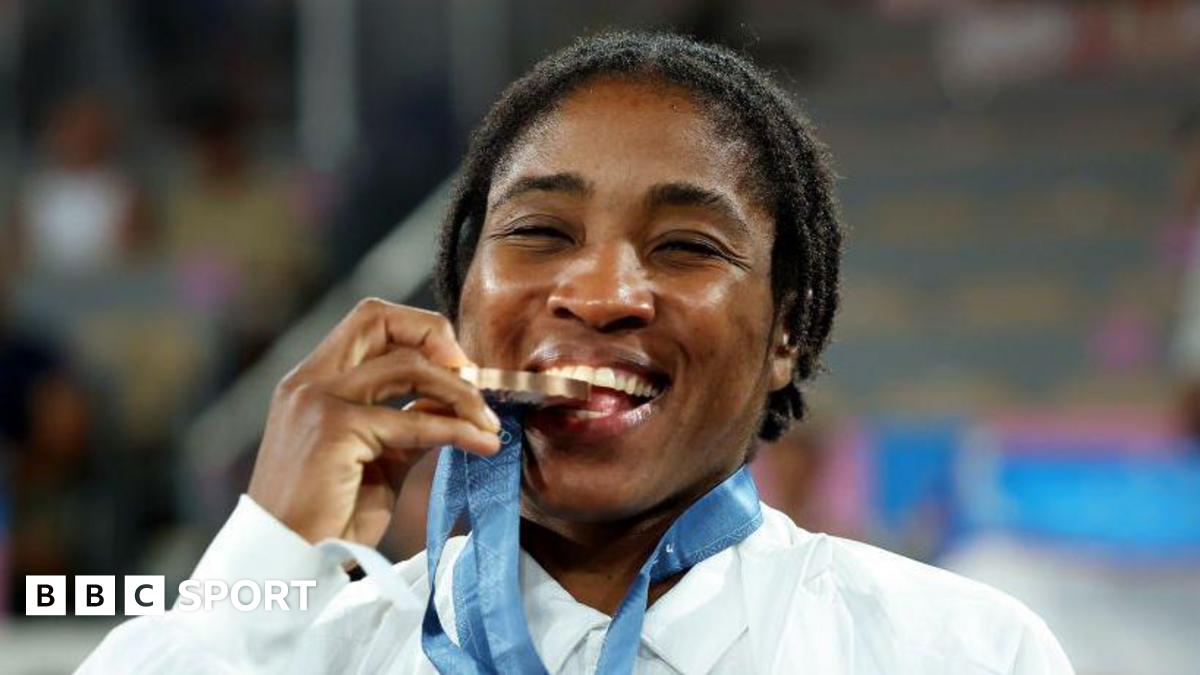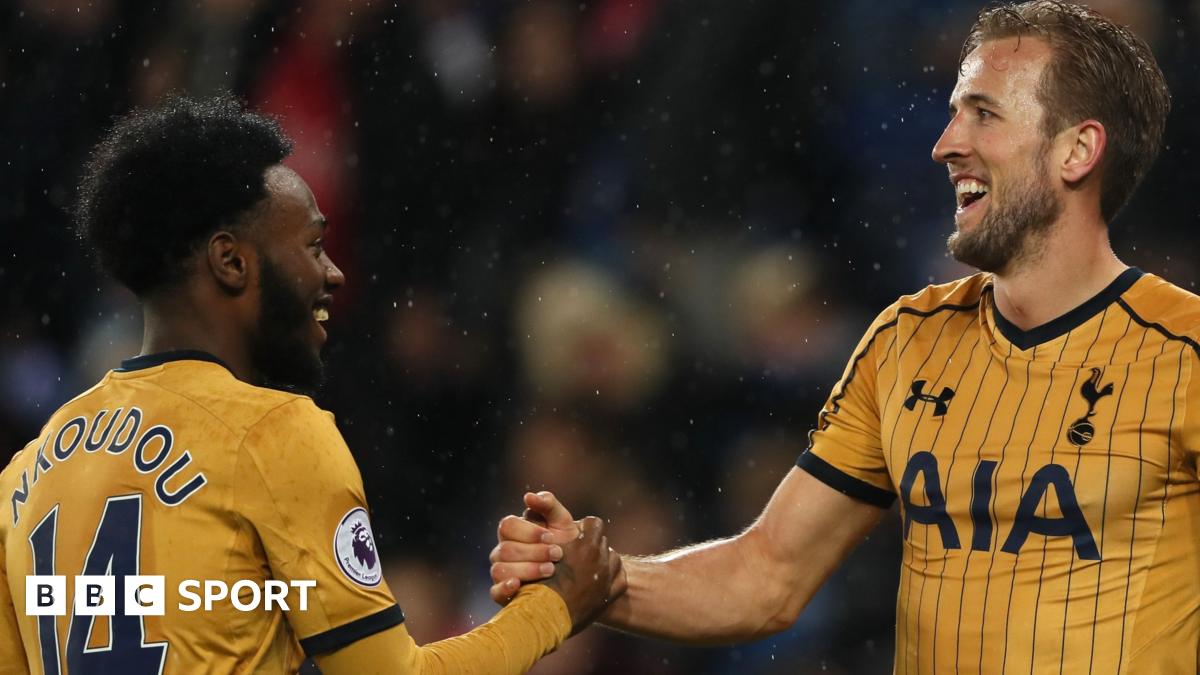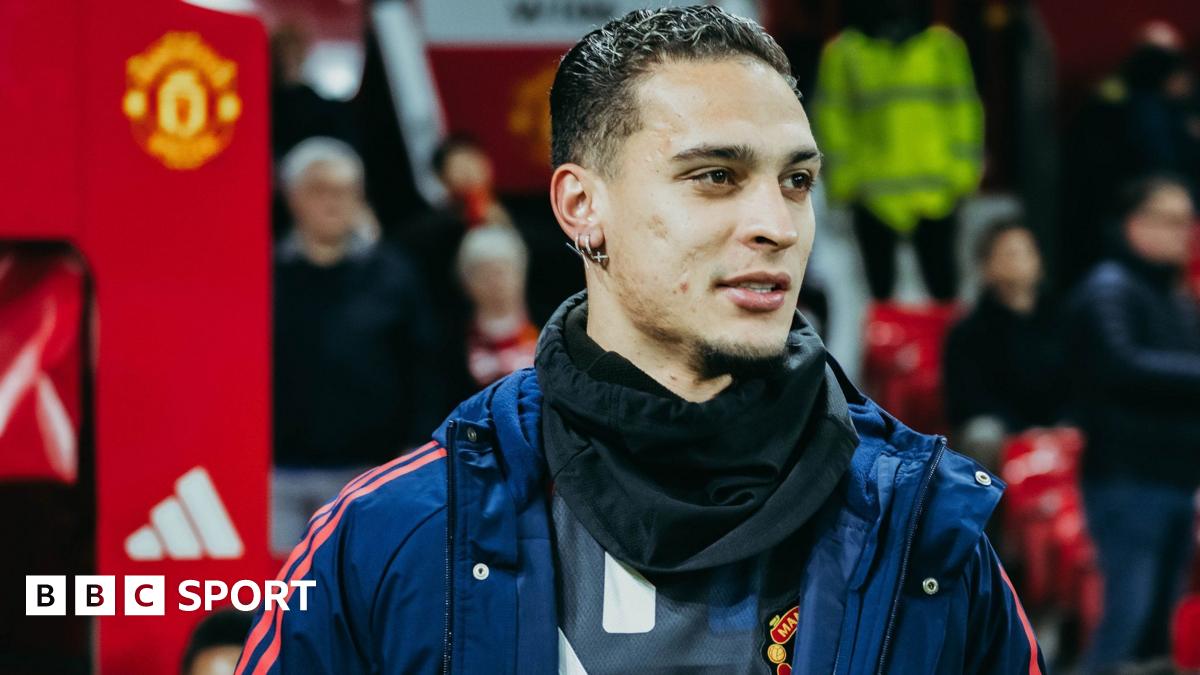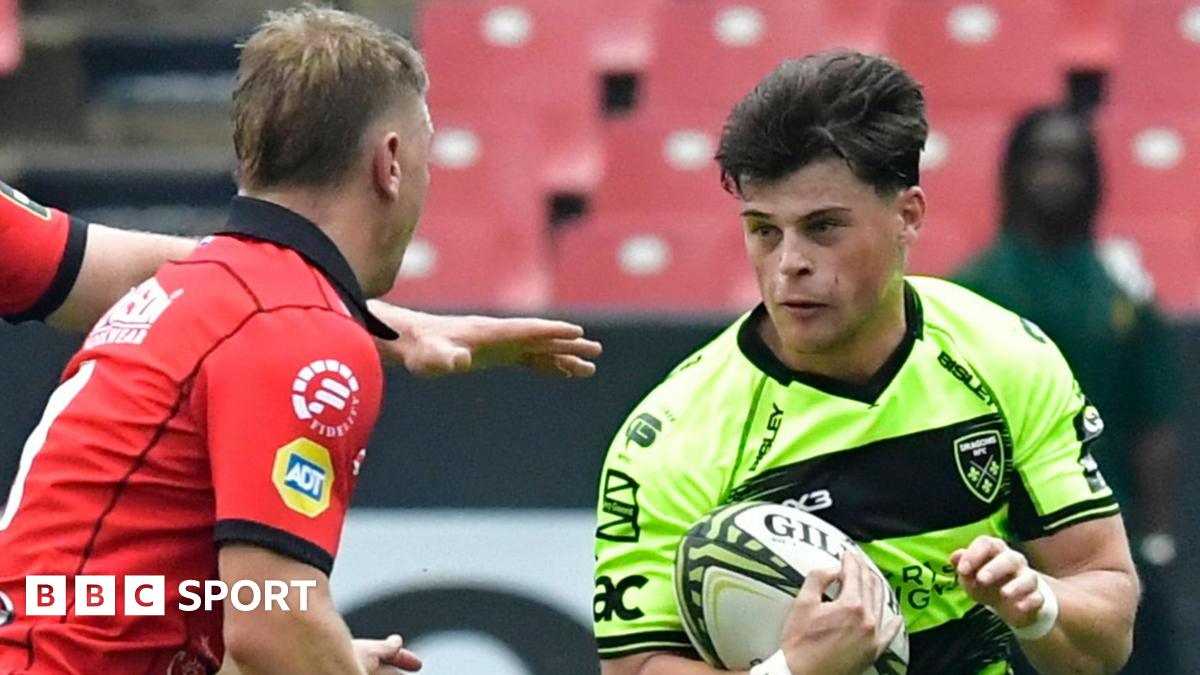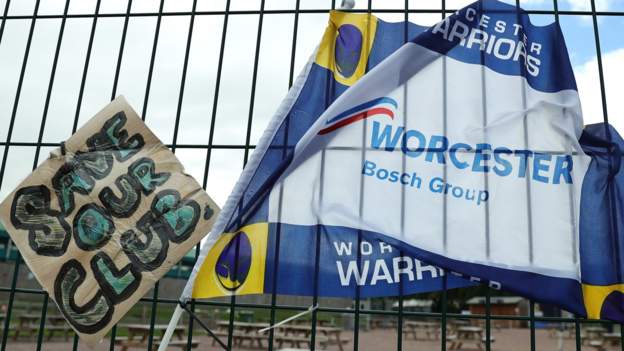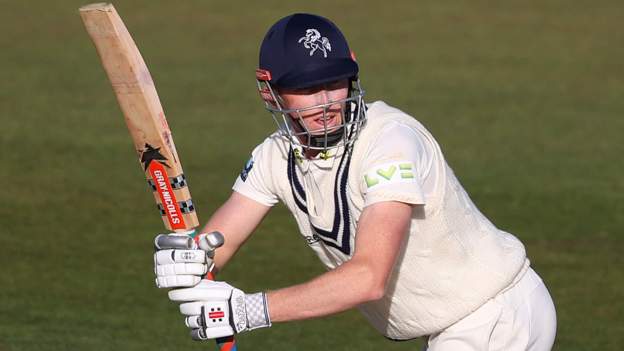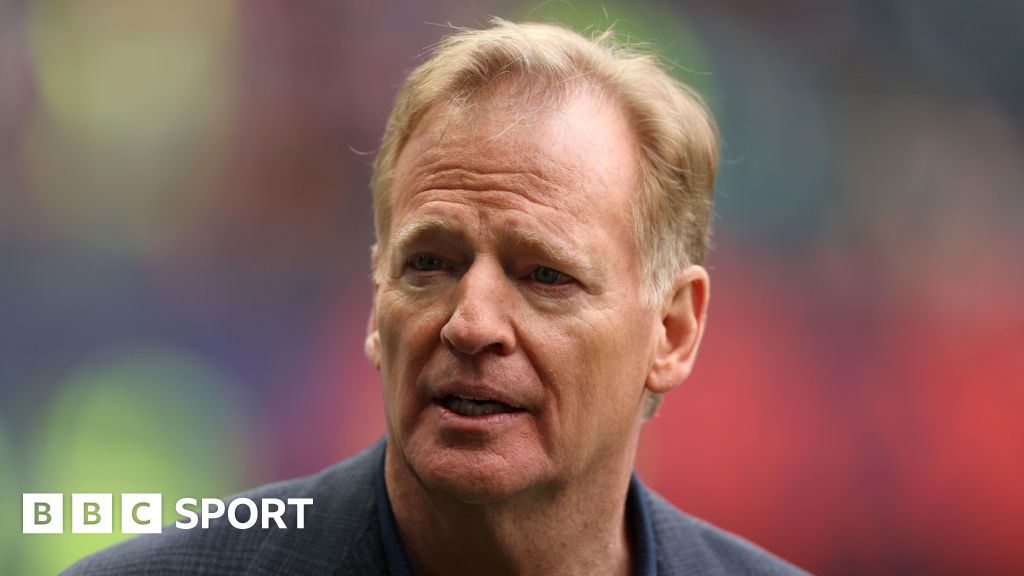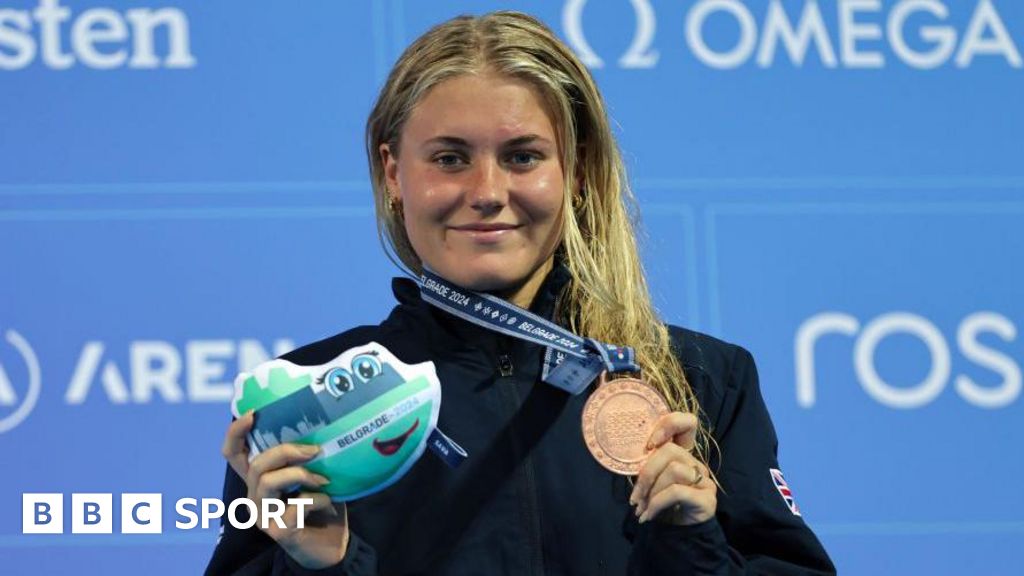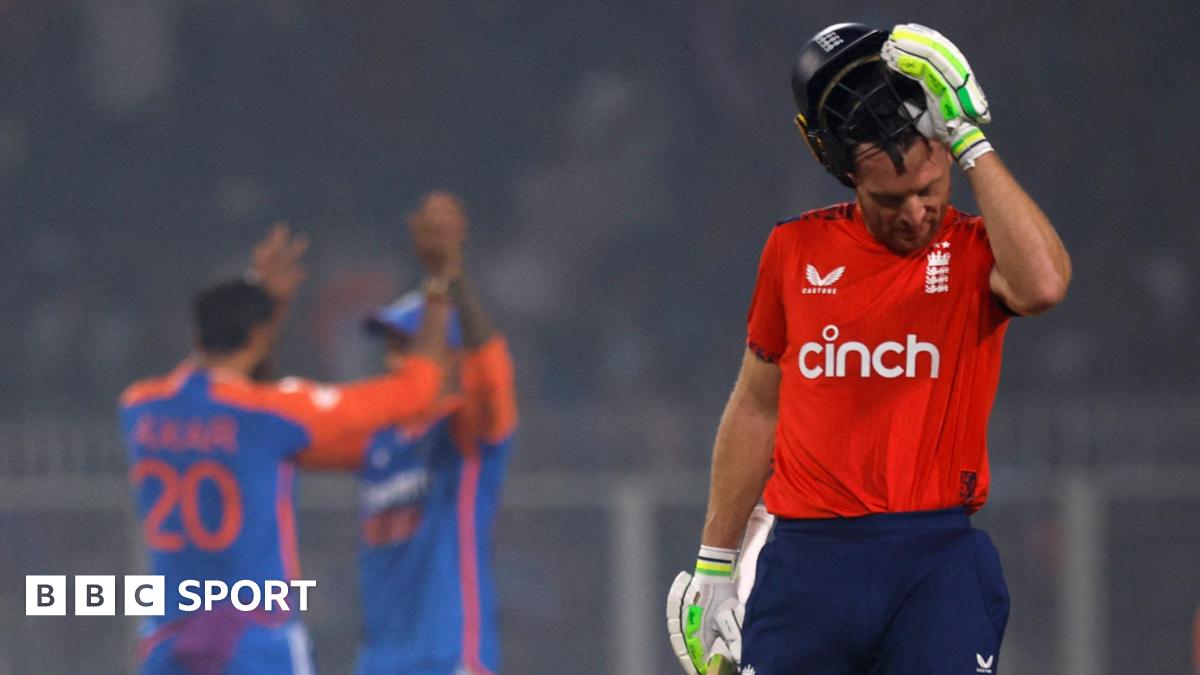The boss of Premiership Rugby has acknowledged the “status quo” needs to change as he outlined his plans to prevent other clubs meeting a similar fate to Worcester Warriors.
The financially stricken club were suspended from all competitions by the Rugby Football Union (RFU) and put into administration on Monday.
Fellow Premiership side Wasps are also under pressure to raise urgent funds amid a threat of action from HMRC.
Premiership Rugby’s chief executive Simon Massie-Taylor told BBC Sport that “financial viability and visibility is a big theme” moving forward and said he has asked all clubs to provide a “really clear picture” of their current financial position.
However, Lance Bradley, chief executive of Gloucester, said he did not believe there would be a “domino effect” to the plight facing Worcester and Wasps.
BBC Sport takes a look at the key issues facing rugby’s finances.
What has happened?
On Monday, Worcester Warriors failed to meet a funding ultimatum set by the RFU, which resulted in the governing body suspending the club from all competitions.
Later that day the Department for Digital, Culture, Media and Sport agreed to the club’s directors’ request to place Worcester into administration.
Administrators were appointed on Tuesday to work with a “high degree of urgency” to try and find a suitable buyer for the club. There are two consortiums known to be interested in bidding.
Despite having been suspended, Worcester remain in the Premiership table and there is the possibility that the suspension could be lifted if a buyer is found, meaning they could re-join the league later in the season.
But Saturday’s fixture against Gloucester has already been called off.
Elsewhere, Wasps filed notice last week in the High Court that they intend to appoint administrators to “protect the club’s interests”.
Wasps Holdings Limited, which includes the Premiership club and Arena Coventry Limited, took the action amid an “impending threat of action from HMRC” and said it did not mean the business was in administration.
How did we get here?
Many Worcester fans have blamed the situation on financial mismanagement by co-owners Jason Whittingham and Colin Goldring, saying that the club has been “run into the ground”.
Players have faced late pay, with some members of staff being paid 65% of their salaries and others not at all.
The club faced an unpaid £6m tax bill, which led to HMRC issuing a winding-up petition, and owed a further £14m in Covid sports survival loan payments.
Meanwhile, the Wasps situation is related to an unpaid tax bill and the repayment of £35m in bonds which helped finance their relocation from London in 2014.
Covid undoubtedly exacerbated the challenges that Premiership rugby clubs were already facing and one former club chief executive said that the current situation was symptomatic of the “real after-effect of Covid biting”.
However, most clubs were making losses before the pandemic and there were already concerns about the sustainability of what clubs were spending on player wages compared to their incomes.
One club owner, who spoke on condition of anonymity, told BBC Sport: “I don’t think there’s one owner who’d tell you the model is working. It’s completely flawed.”
Gloucester chief Bradley also criticised a recent vote by a small number of Premiership clubs to go ahead with plans to raise the salary cap from £5m to £6.4m from the 2024-25 season, with his side one of a number of clubs “unhappy” at this decision.
How are other clubs affected?
While clubs are dealing with their own issues, they will also be impacted by the situation at the ailing clubs. Gloucester’s director of rugby George Skivington said the cost of the cancellation of Saturday’s fixture against Worcester is “very big to the club”.
Under RFU rules, any club that enters administration is automatically relegated next season, unless they can prove it was a no-fault insolvency.
With Championship clubs having recently struggled to meet the Minimum Standards Criteria to enable promotion to the Premiership, any relegation of Worcester, and perhaps Wasps, could mean a shrinking of the league.
Sources say this could have a knock-on effect regarding media rights.
ITV agreed a new deal with Premiership Rugby to broadcast a number of matches, including the Twickenham final, on free-to-air television earlier this year.
Bristol Bears owner Stephen Lansdown recently said there is “just not enough money in the game,” adding the league needs to generate more revenue to attract other investors.
Bradley, meanwhile, said that all clubs have challenges, but the issues affecting Worcester and Wasps are “specific” and should not be viewed as “contagious”.
What are the governing bodies doing?
Worcester captain Ted Hill has said the structure of Premiership Rugby needs to be looked at.
“There have to be closer looks at people who want to buy clubs because this isn’t something people will want to happen again,” he told Radio 4’s Today programme.
“They want their clubs, which are massive parts of their communities, to be safe and to be able to be the best they can be.”
Massie-Taylor told BBC Radio 5 Live’s Rugby Union Weekly podcast he had “made a call to clubs that we need a really clear picture of things”.
The RFU, meanwhile, said: “While it is the responsibility of each business owner to manage their individual finances, we will look at learnings from this situation to see what regulation can be put in place to provide all parties with more financial transparency.”
How will this impact rugby’s future?
There are currently no Worcester players in the England men’s set-up but two University of Worcester Warriors players, Lydia Thompson and Laura Keates, will travel to the upcoming World Cup in New Zealand with potentially no club to return to.
Worcester’s players cannot train at the club during the current period due to a lack of insurance.
Even if they wanted to move clubs, Massie-Taylor expects this to be difficult, saying: “We have started a season, people’s recruitment has been made, the salary cap is what it is.
“There will be options for some players but not all of them – that is the brutal message here.”
There is a general consensus among the clubs that the Premiership Rugby product is not the problem but the financial model needs close attention. Bradley said one improvement to help attract new fans would be changing the schedule so league matches are not played during international windows.
Massie-Taylor added: “There are two things you need to address around financial success, one is the general growth plan for the sport and the other is laying foundations for future investment and for new ownership of clubs and fresh capital.”



